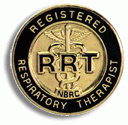The theoretical orientation that best suites my personal style is a combination of both client-centered and brief therapy. In the first part of the paper, I try and describe the importance of developing a good client/therapist relationship using a client-centered approach. I like this approach the best because it helps the client to be more open and truthful with the therapist. There are several techniques that I find important in developing this bond such as: genuineness, unconditional positive regard, accurate empathy, and active listening. After building a relationship with the client, a therapist is now faced with identifying and solving a problem behavior. With this in mind, I found that the brief therapy method best fits my style. The great thing about this orientation is that it is a very directive and time efficient approach. This is because its theoretical constructs rely heavily on a cognitive-behavioral basis. In the last part of the paper I go into greater detail in describing what I like best about this therapy.
The first thing a therapist should concern themselves with is building a relationship with a client. A great way to start doing this is by demonstrating genuineness. A therapist displays genuineness by showing their true selves by not hiding behind their professional stature (Allen 1994). In essence, the therapist is saying to the client, "Hey, look I have nothing to hide from you, what you see is what you get."ÃÂ In doing this, a client may become more comfortable with themselves and thus able to share sensitive information. In a way, the use of genuineness helps both the client and the therapist drop their preconceived roles. They are no longer interacting as a client and therapist, but are relating to each other as two human beings trying to connect. Once this...


